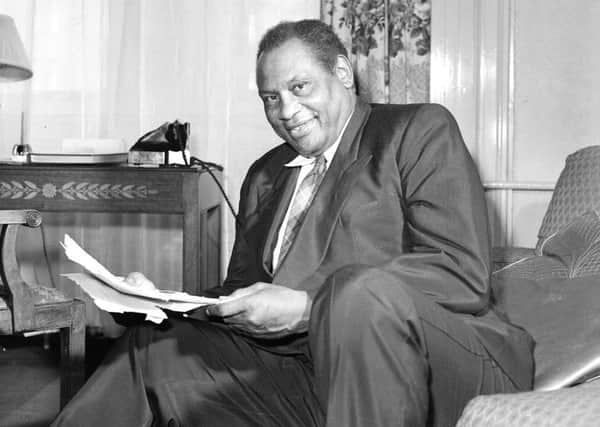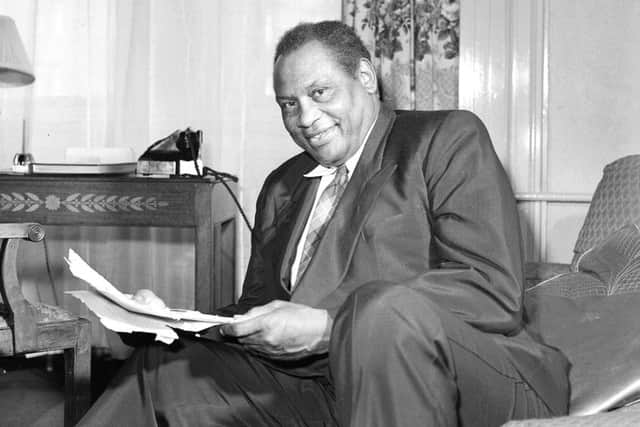Video: Folk hero Paul Robeson entertains miners in Edinburgh


Paul Robeson was a famous name on both sides of the Atlantic in the pre and post war era. He starred in Hollywood blockbusters and was a critical smash on Broadway, his distinctive baritone voice capable of mesmerising audiences.
But as a prominent black man working before the dawn of civil rights, Robeson encountered racism on an almost daily basis.
Advertisement
Hide AdAdvertisement
Hide AdRather than accept it, he chose to speak out. He was a passionate believer in equality and workers’ rights at a time when expressing such viewpoints was enough to end careers in the US.


He became a hero to trade unionists and miners in particular after starring in The Proud Valley, a 1940 Ealing production filmed on location in the South Wales coal fields.
Now the life and work of Robeson is being celebrated as part of the British Film Institute’s Black Star season.
The BFI has shared with The Scotsman rare newsreel footage of Robeson’s visit to Edinburgh in May 1949.
He performed a special concert for miners at the Usher Hall, as well as touring a Midlothian colliery.


The visit was arranged by the Scottish Area of the National Union of Mineworkers, and the concert attracted thousands of pit workers from across the country.
“All Scottish coalfields arranged parties to the capital that evening, by rail and by road they arrived in their hundreds,” the film’s narrator says.
Advertisement
Hide AdAdvertisement
Hide Ad“That evening, the miners came to see Robeson. But the same afternoon, Robeson had been to see the miners.”
The film follows Robeson as he visits Woolmet colliery near Danderhall, a short distance from Edinburgh.
As well as meeting with pit officials and union members, Robeson performed the folk standard ‘I Dreamed I Saw Joe Hall Last Night’ for miners in the canteen - a song about an American trade unionist who was allegedly framed on a murder charge and executed in 1915.
It was far from the star’s first visit to a working pit.
“Paul Robeson felt a strong affinity with Wales and the Welsh miners,” said Nathalie Morris, a senior curator at the BFI National Archive.
“In the late 1920s he joined in their hunger marches and performed in Wales many times from the late 20s onwards.
“When Robeson’s passport was revoked by the American authorities in 1950, the South Wales miners were among the protestors who lobbied the US government for its return.”
Robeson’s communist sympathies and criticism of the US Government eventually brought him to the attention of the FBI.
Unable to travel abroad, his income was severely reduced.
Advertisement
Hide AdAdvertisement
Hide AdHis passport was reissued in 1958 and he again returned to Scotland as part of a tour of the UK.
Robeson died in 1976 from a stroke at home in Philadelphia at the age of 77.
Woolmet colliery, which employed 960 miners at its peak, was closed in 1966.
The Mining Review newsreel is part of the BFI’s Black Britain on Film, a major new collection of over 150 film and TV titles that uncovers the heritage of black Britain and is available to view on the BFI’s VOD platform, BFI Player.
